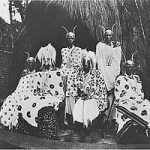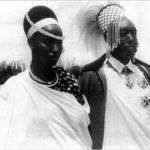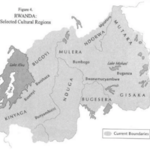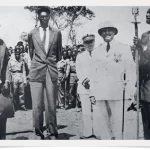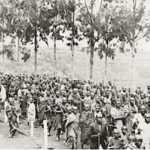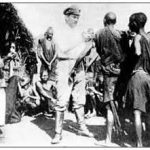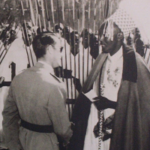The Rwandan Context of the Royal Rituals
Following a period of important military expansion and internal political consolidation, the kingdom of Rwanda included close to two million people within a highly centralized polity and hierarchized society at the time of European arrival in the early twentieth century.…
Ritual as Communication: Structuralists and the Analysis of Drama
Rituals are essentially formalized social drama. They are performed by people; therefore (where not esoteric) they invariably focus attention on the social aspects of the ritual, because in the performance there is no way of ignoring the question of who…
What Role Has KingShip: An Analysis of the Umuganura Ritual of Rwanda
An Analysis of the Umuganura Ritual of Rwanda as presented in M. d’Hertefelt and A. Coupez, La royauté sacrée de l’ancien Rwanda Divine kingship is one of the hoary tropes of precolonial Africa as seen by outside observers. Associated with…
Bunyabungo: The Western Frontier in Rwanda, 1750–1850
Social hierarchy is manifested in many ways: politically, economically, and culturally. And asserting superiority occurs in many forms, including literary narratives, where assumptions of social superiority can be expressed in entertaining ways, even as the narrative carries a powerful didactic…
The Clans Of Rwanda: A Historical Hypothesis
Colonial historiography assumed that African societies were static, permanent, and primordial. The presence of “clans” in African societies was taken to prove to the case, for clans were seen as atavistic features that represented the legacy of a political order…
The Colonial Legacy in the Postcolonial Period
Following a second exile of seventeen years, Ntambuka, Ndogosa’s son and successor, returned to Ijwi just before independence in the territorial division of the island remained as it had been since Bera’s death in 1936. Ndogosa’s son retained only the…
The Social Impact of the New Game
One of the blinders on colonial perceptions resulted from the perpetuation of the myth of indirect rule. Because he was local to Ijwi and a member of the royal family, Bera was anointed by the colonial regime as a “traditional”…
The Changing Political Game
New Goals, New Rules, New Strategies During his long retreat and flight, Ndogosa had acted to avoid relinquishing sovereignty. For him, the question of sovereignty had been more important than preserving and extending his internal power by manipulating or negotiating…
The Changing of the Guard under Colonial Rule
The death of Rwabugiri, the Rwandan conqueror, led to the withdrawal of direct Rwandan power from Ijwi. But the reestablishment of the royal Sibula line in the southern part of Ijwi after the death of Rwabugiri did not signal a…
King And Chief On Ijwi Island
One early legacy of colonial rule in Africa was an academic focus on the process of elite formation in African societies. A product of the perceived political needs of the early independence period, this perspective generally emphasized manpower development as…


